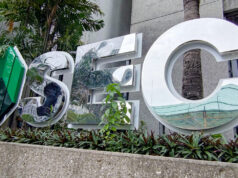PHL banks ramping up sustainability initiatives
LOCAL LENDERS have been ramping up their sustainability drive and the central bank’s recent membership with the Network for Greening the Financial System (NGFS) is expected to further boost the industry’s commitment to the cause.
“With BSP’s membership to the Network for Greening the Financial System, we will know the best practices in other jurisdictions as well as benefit from the exchanges of views and experiences of member-central banks particularly in the areas of risk management and stress testing exercises with respect to climate and environment related risks,” Bangko Sentral ng Pilipinas (BSP) Governor Benjamin E. Diokno said in a text message.
The central bank in May unveiled its sustainable finance framework for lenders which lays out the adoption of sustainability principles through environmental and social risk management systems. It also requires banks to have environmental, social and governance considerations in their governance frameworks, risk management systems, strategies and operations.
The BSP said it will give banks three years to adopt the provisions of the said framework.
Philippine banks have been committing to their sustainable development goals (SDG) through growing their sustainable loan portfolio.
Among them is the Bank of the Philippine Islands (BPI), which just raised P21.5 billion from its offer of coronavirus disease 2019 response bonds that will be used to fund lending for small businesses during the pandemic. The papers qualified as social bonds under the ASEAN Social Bonds Standards in the Philippines.
“Our SDG-related loan portfolio for 2019 was P390 billion or 35% of our 2019 consolidated loan portfolio,” BPI Head of Corporate Strategy and Investor Relations Maria Consuelo “Chinky” A. Lukban said in an e-mailed reply to questions.
Rizal Commercial Banking Corp. is also building up its sustainable lending portfolio to help promote a low carbon economy and to build resilience in their balance sheet.
“As of the end of July 2020, RCBC’s sustainable assets represent approximately 11% of total loan portfolio,” the bank’s Sustainable Finance Team said in a statement sent to BusinessWorld.
Earlier this year, RCBC Chief Risk Head of Corporate Risk Management Services Jamal Ahmad said the bank’s sustainable loan portfolio made up 10%, which represents P51.7 billion, of their loan book as of end-December.
RCBC raised P8 billion from two-year ASEAN sustainability bonds in June 2019. This was followed by the bank’s issuance of $300-million dollar-denominated bonds that was under and its sustainable finance framework and part of its medium-term program.
The road to integrating sustainability in business operations is not without hindrances, the two lenders said.
“There are also still some remaining challenges that banks may face — the need for more capacity building on sustainability, creation of environmental and social risk management systems and reporting standards, setting up of quantitative and qualitative evaluation metrics, transition risks, and market/industry limitation (whether banking industry or other sectors) and readiness,” Ms. Lukban said.
Despite these challenges, Ms. Lukban said banks are seeing opportunities as they push for sustainability including access to new markets, wider financing options, improved resilience and operational efficiencies, among others.
Meanwhile, RCBC said they are looking to improve their focus on sustainability in a way where profitability and sound financial management can coexist with environmental and social responsibility.
RCBC’s net profit dropped 40.9% year on year to P802 million in the second quarter due to higher loan loss provisioning. Despite this, the lender’s net income in the first half went up 17% to P3.11 billion, mainly backed by better trading gains.
The Yuchengco-led lender’s shares closed at P16.40 apiece on Thursday, unchanged from its previous finish.
Meanwhile, BPI’s net earnings slipped 24.9% year on year to P5.29 billion in the April to June period, also dragged by higher loan loss reserves amid the pandemic.
Its shares finished trading at P63.50 each on Thursday, inching up by 1.6% from its Wednesday close. — Luz Wendy T. Noble



